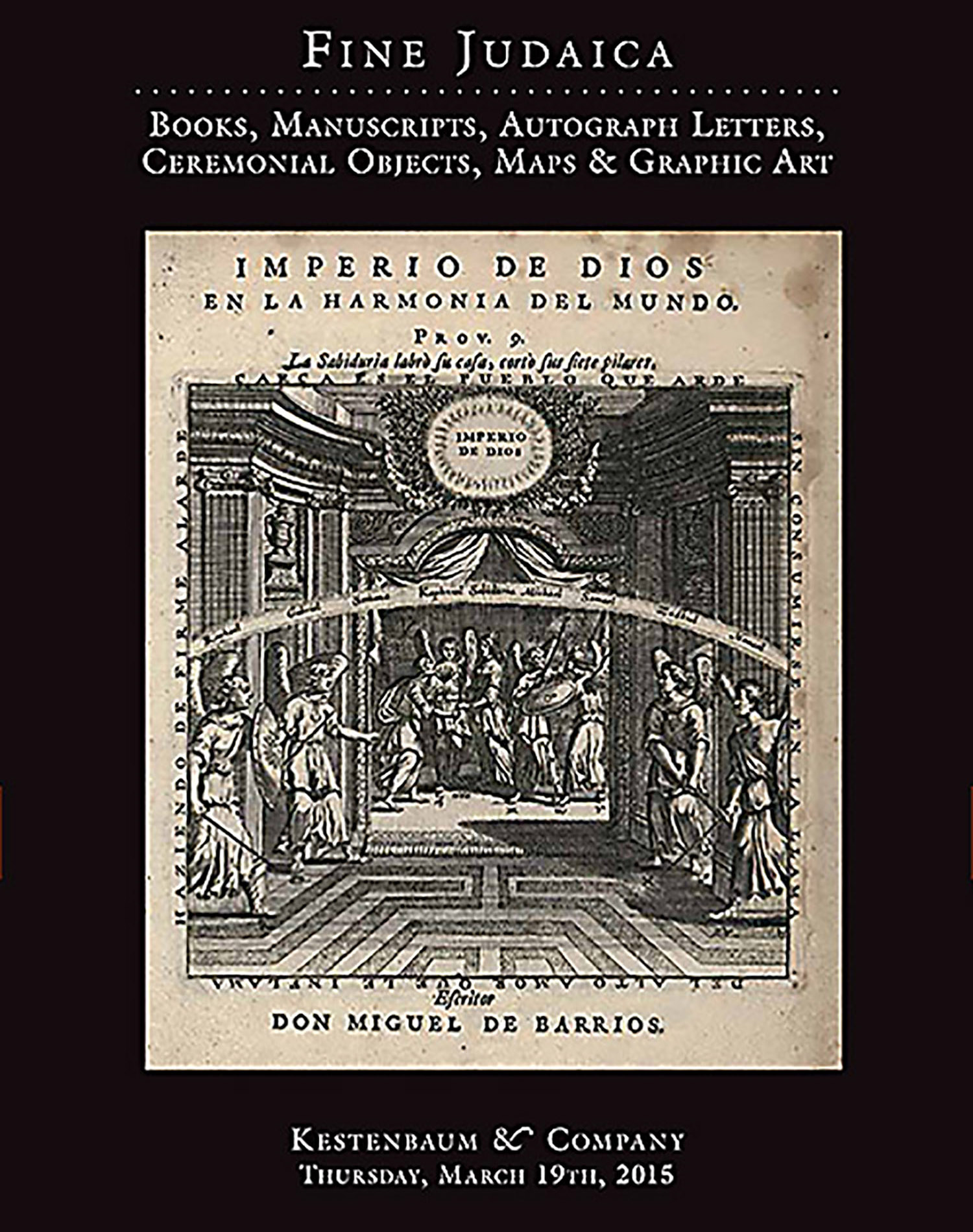(AMERICAN JUDAICA).

AUCTION 64 |
Thursday, March 19th,
2015 at 1:00
Fine Judaica: Books, Manuscripts, Autograph Letters, Ceremonial Objects, Maps and Graphic Art
Lot 7
(AMERICAN JUDAICA).
Boston: Daniel Henchman 1722
Est: $6,000 - $9,000
PRICE REALIZED $6,000
Author of the first Hebrew textbook published in North America (“A Grammar of the Hebrew Tongue,” Boston, 1735), Judah Monis (1683-1764) was the first Jew to receive a college degree in America. Born in Italy to a family of former Portuguese conversos and educated at Jewish academies in Italy and Holland, Monis emigrated to New York around 1715, where he established a small store and taught Hebrew to both Christians and Jews. By 1720 he moved to Cambridge, Massachusetts, home of Harvard College.
At that time, all Harvard undergraduates were required to study Hebrew. The assumption being that no Christian gentleman could be considered truly educated unless he could read the Bible in its original language. Monis was approved by the college as instructor of the Hebrew language - Harvard’s first - but not as a Jew, since Harvard required all its faculty to be professing Christians. One month before assuming his post at Harvard, Monis converted to Christianity - a conversion that attracted widespread notoriety. Local Christian clergy expressed concern that Harvard’s requirement that all its faculty members be of the Christian faith had in turn pushed Monis to an insincere conversion. In the present sermons Monis defended his conversion arguing he left Judaism out of religious conviction and not opportunism.
Monis’s life presents a particular case of how a Jew was viewed in colonial America’s public life. He came to Cambridge, which had no Jewish institutions, to teach Hebrew to Christian students. Having chosen to leave a mature Jewish community in New York City he entered Harvard as a Christian. But the Christian community looked on him with skepticism. Both the Cambridge First Church as well as Harvard College records refer to Monis as “the converted Jew,” “the converted rabbi;” and “the Christianized Jew.”
